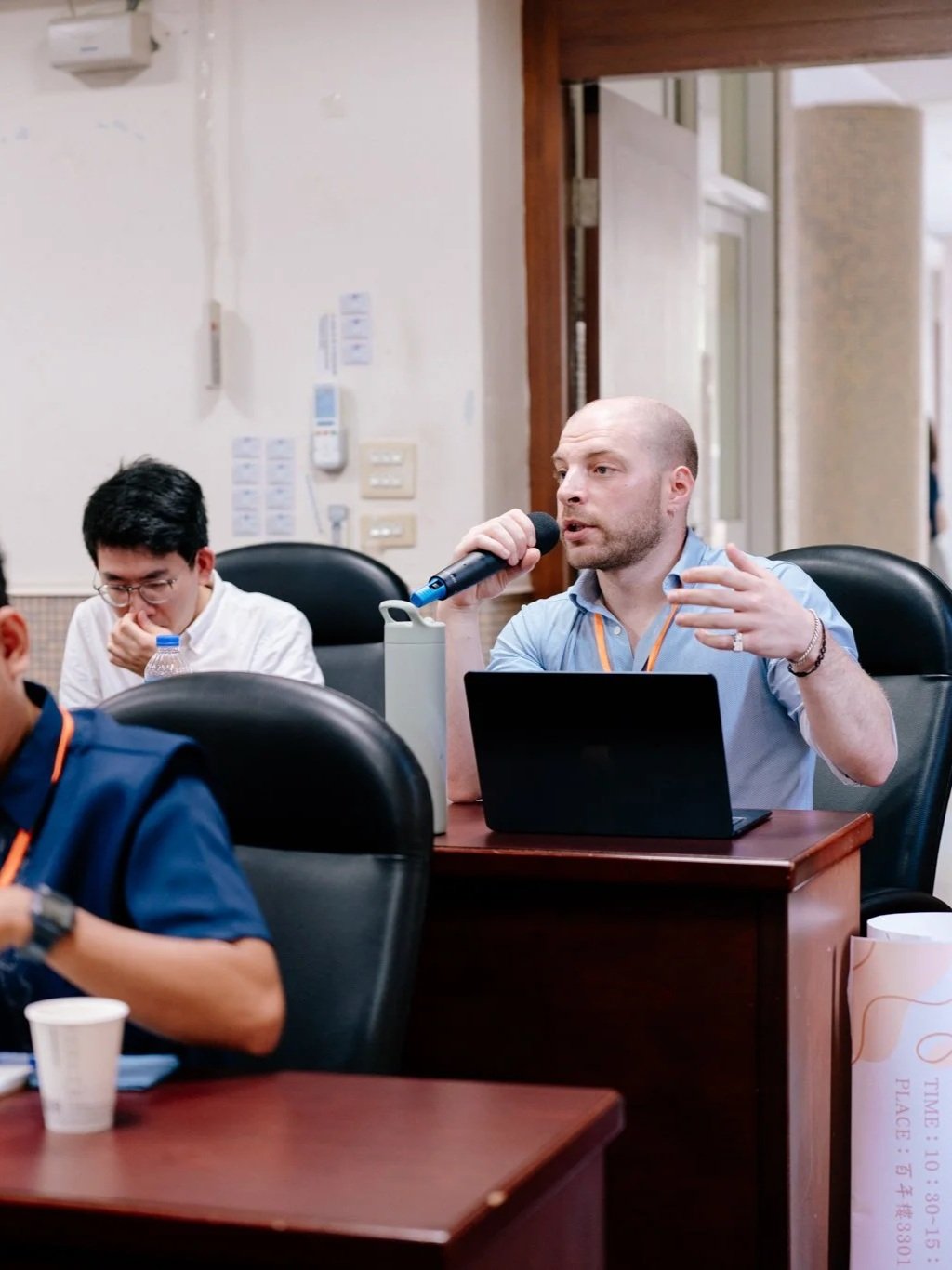
Invited Conferences
-
4-6 Sep 2025 - The 16th Conference of the British Society for the Philosophy of Religion - Oxford University, Oxford
-
28-29 Aug 2025 - International Society of East Asian Philosophy - National Chengchi University, Taipei
-
26-28 Jun 2025 - The 5th Biennial Conference of the European Association for Chinese Philosophy - University of Iceland, Reykjavik
28-30 Mar 2025 - Roots and Branches - East China Normal University, Shanghai
14-15 Dec 2024 - International Society of East Asian Philosophy, 4th Conference - Fukuoka University, Fukuoka.
-
12-15 Aug 2025 - Inaugural Conference of the Asian Society for Philosophy of Religion - Hong Kong Baptist University, Hong Kong
27-28 Apr 2024 - Asian PhilosophyWorkshop: Chinese Metaphysics - Simon Fraser University, Vancouver
-
06-08 Sep 2024 - British Society of Aesthetics, Annual Meeting - Oxford University, Oxford
01-08 Aug 2024 - World Congress of Philosophy - Rome
08-09 Mar 2024 - American Society for Aesthetics, Pacific Meeting - Berkeley
-
21-24 Feb 2024 - American Philosophical Association, Central Division, 121st meeting - New Orleans
07-09 Sep 2023 - European Network of Japanese Philosophy, 7th Annual Conference - University College Cork, Cork
-
31 Mar-1 Apr 2023 - Philosophy of Religion in Asia - Yonsei University, Seoul
-
25-27 May 2022 - Philosophy of Religion Incubator II - Princeton University, Online (Presentation title: “Can We Move to a Cross-Cultural Perfect Being Theology?“)
29-30 Mar 2022 - New Ways of Doing Philosophy of Religion - University of Birmingham, Birmingham (Presentation title: “Can We Move to a Cross-Cultural Perfect Being Theology?“)
-
15-16 Sep 2023 - Title: “Two Kinds of Transformational Creativity in Daoist Philosophy“ - International Society of East-Asian Philosophy - University of Edinburgh, Online
05 Aug 2023 - Title: “Beyond Free Will: Wuwei and Creative Freedom in Daoist Philosophy“ - Free Will in the Philosophy of Religion and Philosophical Theology - Ohio Norden University, Online
28-30 Jun 2023 - Title: “Dancing with the Dao: Wuwei and Divine Creativity“ - Fifth International Conference on Philosophy and Meaning in Life - Tohoku University, Online
21-23 Apr 2023 - Title: “A God That Enjoys our Suffering? The Problem of Evil in Pratyabhijñā Theism“ - Global Philosophy of Religion Project Conference: The Problem of Evil and Suffering - Waseda University, Tokyo
10-12 Mar 2023 - Title: “Nothingness in Consciousness: A Metaphysics of Radical Creativity“ - 17th Annual Midwest Conference on Chinese Thought - York University, Toronto
22-24 Jun 2021 - Title: “Kūkai’s View of the Deity as Language“ - Global Philosophy of Religion Project Conference: The Existence and Nature of God and other Deities - University of Birmingham, Online
Other Talks
06/2025 - “The Logic of Ideal Agency in the Zhuangzi” - Department Workshop - National Taiwan University, Taipei
04/2025 - “A Daoist Theory of Creativity” - Department Colloquium - National Taiwan University, Taipei
04/2025 - “A Daoist Theory of Creativity” - Department Colloquium - National Soochow University, Taipei
01/2025 - “The Beauty of Grimacing Xishi“ - Aesthetics Graduate Seminar - University of British Columbia, Vancouver.
12/2022 - “Metaphysical Continuism“ - Graduate Colloquium - University of British Columbia, Vancouver.
11/2022 - “The Hard Problem of Consciousness“ - Green College Members’ Series - Green College, Vancouver.
07/2022 - “Towards a Buddhist Theism“ - Demystifying Chan Buddhism (Summer School) - University of Ghent, Ghent.
02/2022 - “Rethinking God’s Greatness“ - Graduate Colloquium - University of British Columbia, Vancouver.
02/2022 - “Rethinking God’s Greatness“ - Green College Members’ Series - Green College, Vancouver.

